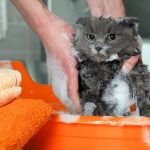Are you a curious cat parent who’s constantly amazed by your feline friend’s quirky behavior? If so, you’ve probably noticed your cat’s peculiar fascination with bread.
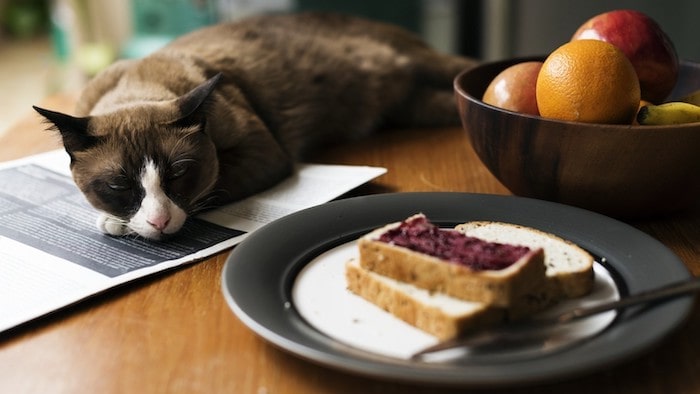
Whether it’s a freshly baked baguette or a slice of sandwich bread, cats seem to go wild for this carbohydrate-rich treat. But why? As a fellow cat enthusiast, I’ve done some digging to uncover the reasons behind this bread obsession.
Not only that, but I’ve also got some tips for cat owners who want to indulge their pets without risking their health. So, buckle up and get ready to uncover the secrets of a cat’s love affair with bread!
Can Cats Eat Bread?
As a cat owner, you may be tempted to share a piece of bread with your feline friend, especially if they’re giving you those big, pleading eyes. While it’s not necessarily harmful for cats to eat bread in small amounts, it’s important to understand that bread doesn’t provide any nutritional benefits that cats need.
In fact, cats are obligate carnivores, which means that their digestive systems are designed to process meat and animal protein, not carbohydrates.
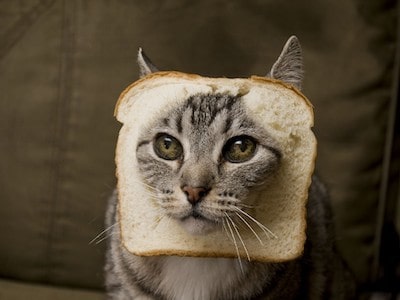
Additionally, some types of bread may contain harmful ingredients for cats, such as garlic or onion powder. These can damage a cat’s red blood cells and lead to anemia, which can be dangerous or even fatal in severe cases.
If you do decide to give your cat bread, it’s crucial to choose a type that is safe for them. Plain, unsalted bread is generally the best option, but you should avoid breads that contain added sugars, seasonings, or other potentially harmful ingredients.
However, it’s important to remember that bread should not make up a significant part of your cat’s diet. Cats require a balanced diet that is rich in animal protein and other essential nutrients, which can be found in high-quality cat food.
While an occasional treat of bread won’t harm your cat, it’s not a necessary or ideal component of their diet.
Why do Cats Like Bread?
Cats are notorious for their curious behavior, and their love for bread is no exception. While there’s no clear-cut answer, there are a few possible reasons why cats may be attracted to bread.
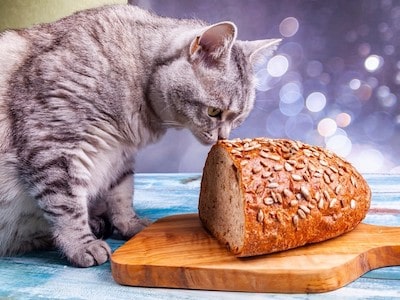
The texture of bread is what attracts cats. Because they enjoy kneading and pawing at soft surfaces, the soft and doughy consistency of bread can be appealing to them.
In addition, the scent of bread may attract cats. Since yeast is often used in making bread, it emits a unique fragrance that can appeal to felines.
Finally, it is possible for certain cats to be drawn to the flavor of bread. Despite lacking any vital nutrients that felines require, bread does possess carbohydrates and modest quantities of protein.
Benefits and Risks of Feeding Bread for Cats
Feeding bread to your cat may seem harmless, but it’s important to understand the potential benefits and risks associated with this practice. Here are some of the benefits and risks of feeding bread for cats:
Benefits:
- Provides carbohydrates: Although bread contains carbohydrates that can provide energy for your cat, it is important to remember that cats do not need carbohydrates in their diet and are better at digesting animal protein.
- May provide some protein: Although bread contains some protein, it is crucial to acknowledge that cats rely on animal protein as their primary source of this nutrient. Nonetheless, the protein found in bread can still have a positive impact on your cat’s well-being.
- Can be a treat: Offering safe types of bread in moderation can make it a special treat for your cat.
Risks:
- Lacks essential nutrients: Cats require essential nutrients like taurine, which is vital for their heart and eye health, to thrive, but bread does not fulfill these requirements.
- May contain harmful ingredients: Bread that contains garlic or onion powder can be harmful to cats as these ingredients may cause damage to their red blood cells resulting in anemia, which could prove fatal if severe.
- Can lead to obesity: The high calorie and carbohydrate content of bread can cause cats to gain weight, resulting in obesity. As a consequence, they may develop various health problems such as joint pain, diabetes, and heart disease.
- May cause digestive issues: Feeding cats excessive amounts of bread can cause digestive issues like diarrhea, vomiting, and constipation because their bodies are not built to handle high levels of carbohydrates.
Alternatives to Feeding Bread to Cats
If you want to offer your cat a special treat but don’t want to risk the potential health issues associated with bread, there are many cat-friendly alternatives that you can try. Here are some ideas:
- Cooked Meat: An obligate carnivore is what cats are and that implies their diet should predominantly consist of animal protein. Your cat can relish cooked chicken, beef or turkey as a nutritious and delectable delicacy provided you eliminate the skin and bones and steer clear from seasoning it with garlic or onion or any other harmful ingredient for your feline friend.
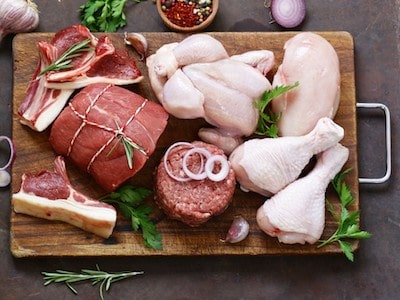
- Small pieces of cheese: Although most cats enjoy cheese and can handle small portions, it’s crucial to realize that cheese is rich in fat and calories. Therefore, you should only offer cheese as a rare treat.
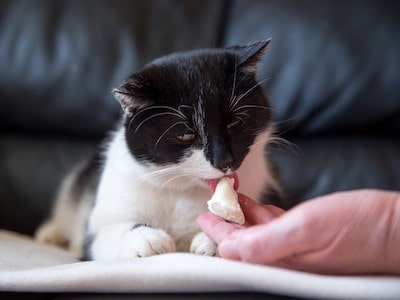
- Cat treats: When searching for cat treats, prioritize those that are rich in protein and do not contain fillers, artificial preservatives or flavors to cater to your pet’s nutritional requirements. You can find a plethora of such treats on the market.
- Fresh vegetables: Whilst some cats may relish fresh vegetables such as green beans, peas or broccoli, it is crucial to acknowledge that cats are obligate carnivores and do not necessitate vegetables in their diet. Therefore, this should only be provided as an occasional delicacy.
- Canned or freeze-dried meat treats: Select a brand that is devoid of hazardous ingredients like fillers, artificial preservatives, and flavors to ensure the treats made from premium animal protein may serve as a nutritious and delicious alternative for your feline companion.
FAQs
Can feeding my cat bread cause health problems?
Feeding your cat too much bread can lead to weight gain, digestive issues, and other health problems. Additionally, some types of bread contain ingredients that are toxic to cats, such as garlic or onion powder. It’s important to prioritize your cat’s nutritional needs and limit their intake of bread.
Can bread cause allergies in cats?
While cats can develop allergies to certain ingredients in their food, bread is not a common allergen. However, if you notice any signs of an allergic reaction in your cat, such as itching, vomiting, or diarrhea, it’s important to consult with your veterinarian.
Can bread help my cat’s digestion?
While bread is sometimes used as a remedy for constipation in humans, it’s not recommended for cats. Cats require a diet that is high in protein and low in carbohydrates, and feeding them bread can disrupt their digestive system and cause constipation or diarrhea.
How much bread can I give my cat?
Bread should be offered to cats as an occasional treat, rather than a regular part of their diet. Limit their intake to a small piece or two at a time, and avoid feeding bread that contains harmful ingredients. It’s important to prioritize your cat’s nutritional needs and provide them with a balanced and protein-rich diet.
Well, It’s a Wrap
To sum up, although bread may appeal to cats due to its texture and aroma, it’s vital to restrict their consumption and prioritize their dietary requirements with a well-balanced and protein-packed meal.
Feeding your cat excessive amounts of bread can result in digestive problems, weight gain, and other health issues. While you can offer bread as an occasional indulgence, selecting a safe variety for them is crucial, and steering clear of bread containing harmful ingredients such as garlic or onion powder is necessary.
There are plenty of feline-friendly substitutes for feeding bread, including cooked meat, cat treats, fresh veggies, and canned or freeze-dried meat snacks. By grasping the advantages and hazards of giving bread to your cat and providing them with a healthy diet, you can ensure their wellness and contentment.
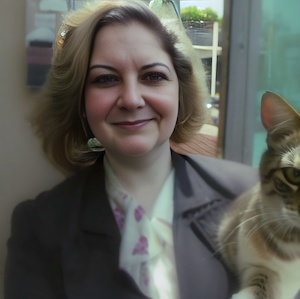
Charlene Pare is the founder of Cat Likes Best. She manages and strategizes the content published on this website. When she isn’t working, she enjoys exploring the city around with her Ameican Shorthair kitty–Moli. Being a technocrat and an avid cat lover, she also writes on pet tech products and some of the featured articles.



